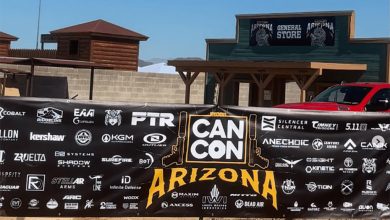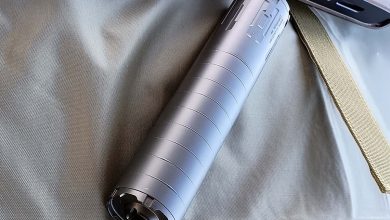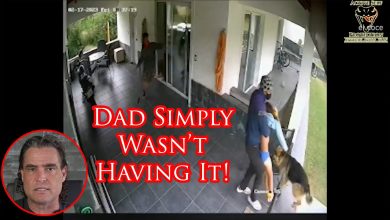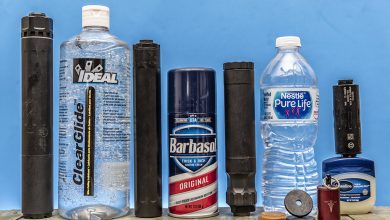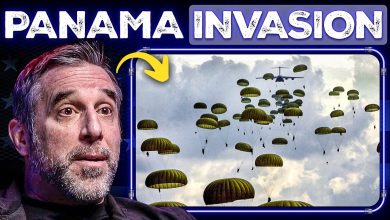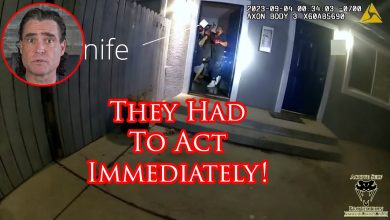How To Handle A Traffic Stop While Armed
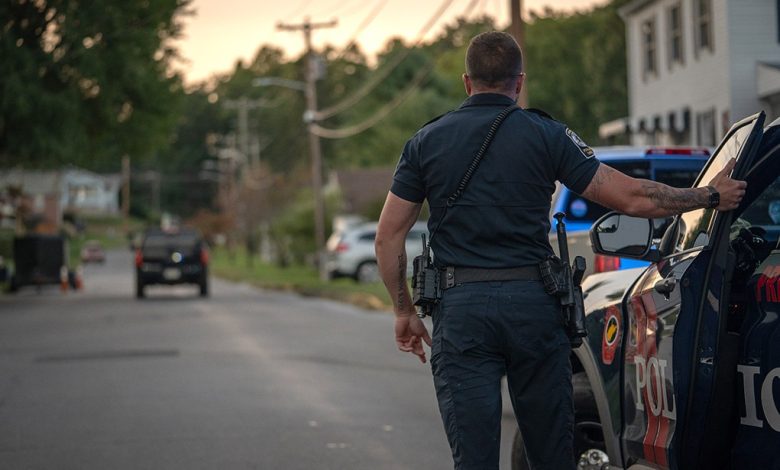
Here we discuss the best ways to stay calm, cool and collected during a traffic stop while carrying a gun.
About 30 years ago, I met one of my best friends during a traffic stop. The first words he ever said to me were, “I have a gun.” During the next few moments, we sorted out the violation—nothing more than an expired tag—and then we had a long conversation about guns. I’m not saying you’re likely to meet your next best friend on a traffic stop, but I can give you some advice to keep you from having a dreadful experience and possibly ruining the rest of your day.
But first, understand this: I live in West Virginia, which is a constitutional carry state. Here you do not need a permit to carry a concealed handgun or any loaded firearm in your vehicle. However, firearms laws about vehicle transport and notification to law enforcement officers vary. So, you should verify the advice I’m providing with a law enforcement professional or attorney in your jurisdiction.
Patrolman Will McGuire is a police officer in my hometown of Princeton. He’s also a hunter, supporter of the Second Amendment and one of the most talented police marksmen I know. It’s been a few years since I was in uniform and routinely interacting with the citizenry, so I asked Will for his five most important pieces of advice for those of us who are armed and involved in a traffic stop.
About Your Hands
“Keep your hands visible during the officer’s initial approach and roll all windows completely down on the approach side of the vehicle.”
This seems straightforward, but let me add some context: Police officers have been trained to watch your hands; when they can see them, they’re more at ease. Also, not every cop will come to the driver-side window, but they do like to be able to see inside the car as they approach. Don’t be digging around in the glove box, console or anywhere else inside the vehicle during this time. Put your hands on the wheel and leave them there. The police officer will be happy for your consideration and will gladly provide you with ample time to secure your necessary credentials. If you’re digging around in your car like a dog looking for a bone, you’re going to put the officer’s spidey senses on edge.
Full Disclosure
“Quickly and calmly make the officer aware that there is a lawfully possessed firearm present in the vehicle.”
Cops don’t like surprises. If you advise them there’s a gun in your vehicle they’ll not be as startled as they would be if they happen to see it. This could prevent undue agitation, yelling … and the officer from pointing his gun at you. Also, while the disclosure that you’re legally armed does not convince a cop you’ll not shoot him, it does convey a sense of cooperation. When the officer arrives at your car—while keeping your hands on the wheel—simply say something like, “Officer, I have a concealed carry permit and a loaded handgun with me.” Then, tell the officer where the gun is located.
Follow Instructions
“Follow all orders quickly and without discussion or hesitation. The officer might instruct you to step out of the car briefly while he secures your weapon. Do as instructed and the officer will return your weapon—probably unloaded—at the conclusion of the stop.”
One thing I learned during my 13 years on the street is that of all the contacts a police officer has, the traffic stop has the highest probability of going awry. There are several reasons for this, but the main contributing factor is that it’s a common and non-confrontational contact that comes with a high probability of encountering unexpected illegal activity. Aside from drunk drivers who want to circumvent detection, officers routinely run into individuals with felony warrants. If the police officer momentarily secures your weapon, there’s no chance he will assume you’re going for it during the traffic stop.
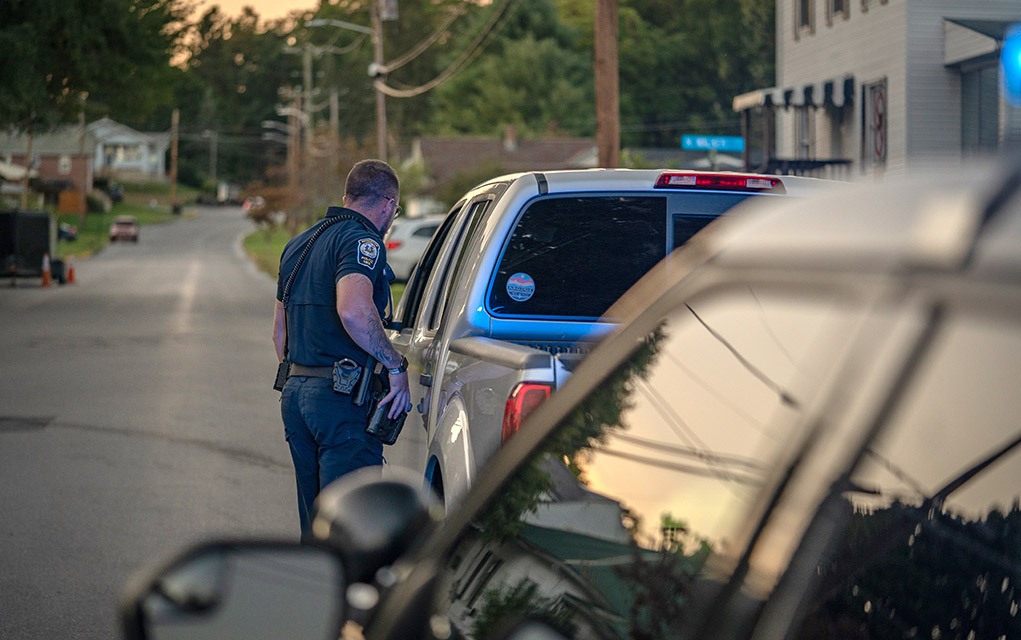
Also, in this new age of cell phone cameras, there’s a popular trend for drivers to record police interactions and sometimes become argumentative about things like reasonable articulable suspicion and probable cause. You have the right to act in any way you desire, but the police officer is also permitted reasonable action to ensure their safety. The best way to make a traffic stop go bad is to interfere with the officer’s attempts to conduct the stop safely. When it’s all said and done, if you’re unhappy with how the officer treated you, file a complaint or a lawsuit. It’s a hell of a lot safer to fight these things in court than on the street.
License and Registration
“Have your documents up to date and easily accessible. Be sure your carry permit is current and with you.”
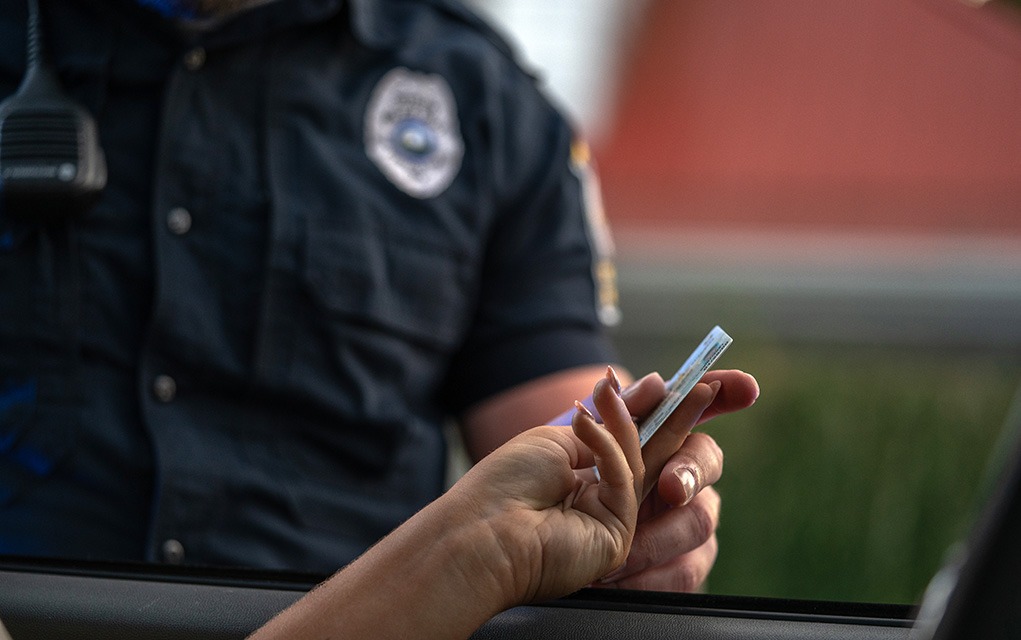

We’re all guilty of not having our poop grouped properly. We participate in traffic stops so rarely that we neglect to have our registration, insurance and license ready and handy for the officer to review. Just take 5 minutes out of your day tomorrow and get your stuff together. Then, store it in your car where you can easily access it. (If you keep your gun in the glove box or console, don’t keep your papers in the same place.) I like to have a photocopy of my driver’s license and carry permit with my registration and insurance. Sure, the cop will likely ask for the originals, and then allow you to dig them out of your wallet, but you will have provided him—nearly instantly—with all the information he needs.
Keep Cool
“Remain calm, you’re well within your rights to carry your weapon, and a law enforcement officer is the last person to try to prevent you from doing so.”
This is the hardest and one of the most important things of all that you need to do. During a traffic stop, we’re afraid it will cost us money and some of us struggle to deal with the anxiety. The officer will have anxiety, too; traffic stops are terribly dangerous for cops. Calmness is contagious, if you and the cop are both calm, everything will go much smoother. I’d also bet that with most officers—except for the newest and youngest—your calmness and good manners will likely result in a warning for the traffic violation if it was not too serious.
On the other hand, nervous and jittery actions on your part will temper the encounter and can make the meeting uncomfortable. The police officer is doing a job, the easier you make it for him, the better the traffic stop will go for everyone. Don’t act like you have a kilo of cocaine under your seat; smile, be friendly … and you never know what new friend you just might make.
Editor’s Note: This article originally appeared in the December 2024 issue of Gun Digest the Magazine.
More Knowledge For The Armed Citizen:


Next Step: Get your FREE Printable Target Pack
Enhance your shooting precision with our 62 MOA Targets, perfect for rifles and handguns. Crafted in collaboration with Storm Tactical for accuracy and versatility.
Subscribe to the Gun Digest email newsletter and get your downloadable target pack sent straight to your inbox. Stay updated with the latest firearms info in the industry.


